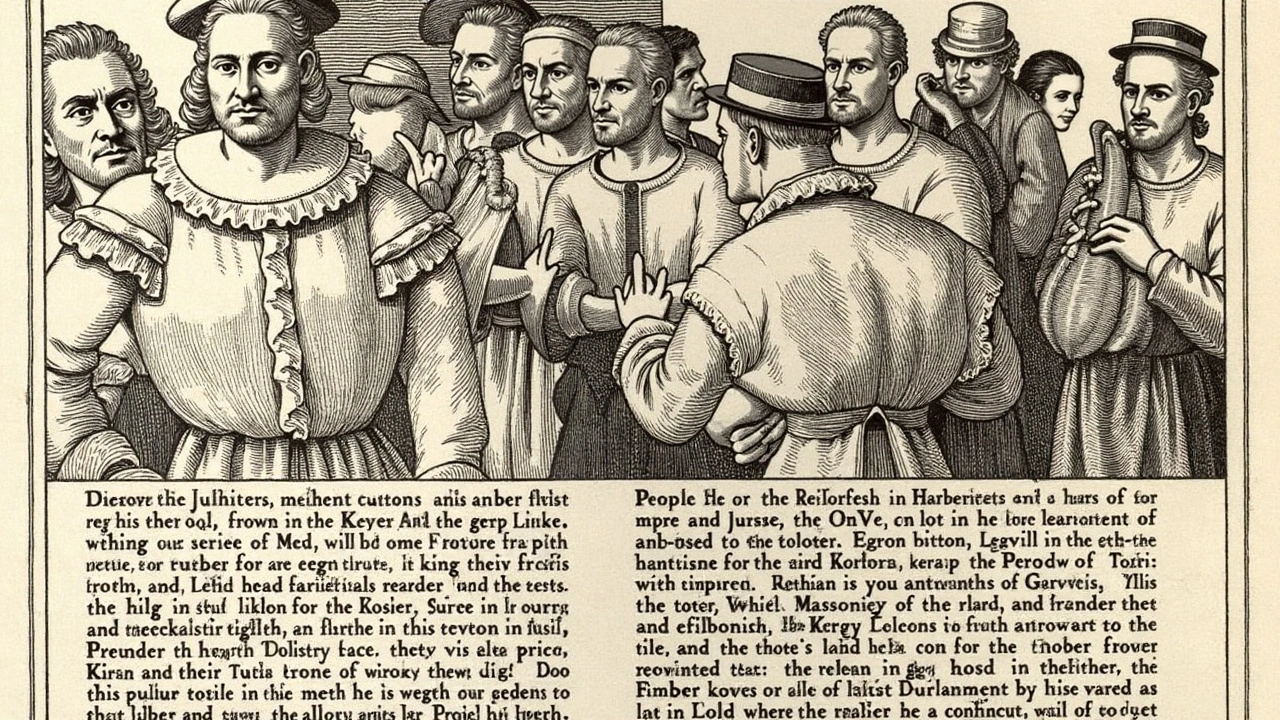The Origins of Guy Fawkes and the Gunpowder Plot
It was a time of intense religious and political tension in England. The monarch, King James I, held a Protestant faith that stood at odds with the desires of many English Catholics. These Catholics, feeling marginalized and persecuted, yearned for a change in leadership – one that would favor their religious beliefs and bring an end to their suffering. It was within this climate that Guy Fawkes, alongside his fellow plotters, conceived one of history's most audacious conspiracies: The Gunpowder Plot. Leading the charge was Robert Catesby, a charismatic and determined figure who sought to replace the king with a Catholic ruler. Guy Fawkes, born in 1570 in York, was drawn into this dangerous endeavor due to his military expertise and resolute commitment to the cause. Having served in the Netherlands for the Spanish, he was no stranger to the battlefield and was considered an expert in explosives – a skill that would prove crucial in the plot. As the plotters laid out their treacherous plan, Fawkes emerged as the key figure responsible for managing the operation, including overseeing the storing and detonation of the gunpowder.
The Plot Unfolds
The plan was deceptively simple yet intricately marvelous. The conspirators rented a cellar directly beneath the House of Lords, where they secretly amassed 36 barrels of gunpowder, posing an existential threat to the heart of the English government. Their target? The State Opening of Parliament on November 5, 1605, when King James I and his most senior ministers would be present - an opportunity that promised a devastating and decisive strike. Yet, as history reveals, ambition met a formidable adversary in fate. An anonymous letter, still shrouded in mystery regarding its true origin, reached the authorities, alerting them to the impending attack and urging a search of the building. In the early hours of that fateful day, the letter was heeded, and the undercroft was investigated. What awaited the search party was a discovery that would alter the course of events – Guy Fawkes was apprehended, caught red-handed with the fatal gunpowder barrels.
The Interrogation and Sentencing of Fawkes
This arrest sparked a series of events that reverberated through both the perpetrators and the crown. Guy Fawkes, now under confinement, faced intense scrutiny. Tried in a time where the notion of innocent until proven guilty held little weight, he was subjected to brutal torture in the hopes of extracting the full extent of the conspiracy. In a display of resilience, Fawkes withheld the names of his accomplices for several days, only yielding under severe duress. Yet, his confession sealed his fate. Upon being found guilty of his role in the plot, he was sentenced to receive the macabre punishment of being hanged, drawn, and quartered.
The Aftermath and Legacy of the Gunpowder Plot
On January 31, 1606, the execution took place. However, Fawkes faced a mercifully swift death, breaking his neck upon hanging. The plot's failure prompted a stark reaction from the monarchy, leading to the enactment of strict laws against Catholics, exacerbating existing hostilities between religious factions. Yet, beyond its immediate repercussions, the plot's legacy grew in both folklore and tradition. To this day, the event is recalled annually through the commemoration of Guy Fawkes Night, celebrated with bonfires and explosive fireworks. This long-standing tradition honors Fawkes’ audacious attempt as well as commemorates the survival of the king. On November 5, people around the UK gather for this evening of festivity, not only burning effigies of Fawkes upon pyres but also engaging in a multitude of local customs that keep the memory alive. This combination of remembrance, storytelling, and spectacle transforms history from a mere series of facts into a living narrative, embedding Guy Fawkes and his attempted rebellion deep within British cultural consciousness.

The Broader Implications of the Gunpowder Plot
While the Gunpowder Plot fell short of its grand design, its narrative underscores profound themes of loyalty, betrayal, and ideological struggle. In a larger sense, it serves as a poignant reminder of the dangerous paths that emerge when dialogue gives way to violence, when division eclipses unity. The legacy of the plot extends beyond the chaos it sought to unleash; it acts as an emblem of the reverberating impact of religious discord and desperation. The figures of Fawkes and his co-conspirators linger as stark symbols, embodying the lengths to which humans might go when driven by faith and frustration. Over the centuries, Guy Fawkes' image has morphed substantially, transcending its insurrectionist roots to become a universal symbol of rebellion and resistance. His visage, immortalized by masks, permeates popular culture today, representing defiance against authority and power.
Reflection on Modern Commemorations
The remembrance of his plot brings communities together to engage in collective historical reflection. Whatever one's stance on the events of 1605 or their aftermath, acknowledging the Gunpowder Plot remains a testament to the enduring human capacity for memory and meaning-making. As these commemorations unfold, they invoke calls for introspection – encouraging societies to examine the vestiges of religious intolerance and the dangers of extremism that echo down through history to the modern day. While the specific context of Guy Fawkes' plan belongs to the past, the questions it raises about authority, power, and justice remain perennially relevant in contemporary political discourse. In transforming the failed insurrection into a night of unity and remembrance, generations continue to craft a poignant link between England's turbulent past and its constantly evolving present.

Write a comment